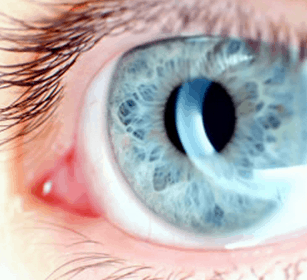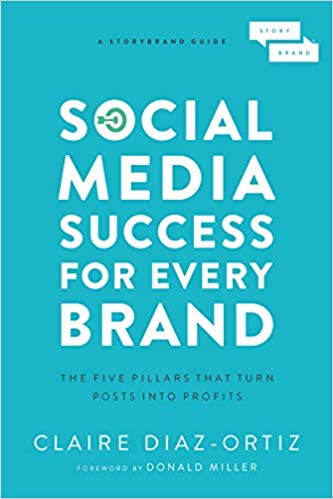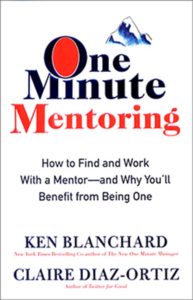Recently, I had an (organic) experience that perfectly clarified to me why disappointment makes you feel bad, and what you can do to mitigate that bad feeling.
Here’s what happened:
I have been desperate for lazer eye surgery for years. In recent months, though, this desperation has grown to fever pitch as I finally neared the date at which I would be close to “eligible” for said surgery. So it was with sheer joy last month that I met with a great doctor about getting the surgery done.
And then, it was with sheer horror that I heard that I could not get said lazer eye surgery, thanks to the poor eyesight genetic luck I happened upon (read: really, really, really bad eyesight).
Amazingly, though, two main things mitigated this (extreme) disappointment for me, and they each made me think about strategies for proactively mitigating disappointment.
1. I Knew the (Poor) Odds:
Although I’m all for positive thinking, there’s no reason to be wildly optimistic about something that just isn’t going to happen. Sometimes it really is better to let people down with the truth (slowly, that is).
When the doctor first delivered the news, “There is a very small chance you will be eligible for the surgery,” I was bummed. I was still holding onto hope, of course, but ultimately the logical part of my brain knew that chances were low. This logical part of my brain then helped ease me into the ultimate disappointment.
Thus, when he confirmed, “You can’t have lazer eye surgery,” seven days later, I was still bummed, but was not rolling around on the floor wailing.
2. I Experienced Something Even Worse:
In order to test this “small chance” theory, the doctor made me wear my glasses for 7 days straight.
Let me repeat: HE MADE ME NOT WEAR CONTACTS FOR 7 WHOLE DAYS.
Since I think I look like an ugly beast wearing glasses, this was a huge blow for me. I hate my glasses. I tolerate them only when I absolutely must. My husband, who is kind, tells me it’s not the frames, it’s the lenses. Which is true. The problem is that I have such a bad prescription that they just can’t make my lenses look anything less than coke bottle sized.
So, forcing me to wear glasses for 7 days straight was something akin to torture. I canceled my entire social schedule. I hibernated. The plus side, though, was startling. When I “got” to put my contacts back on, I marveled at what an incredible invention they were!
Look at me! I’m officially less ugly! I can go out to dinners and talk face-to-face with humans again! What joy!
All this to say, even though I couldn’t get lazer eye surgery, there was still some light — in that I got to put my contacts back on.
Now, getting rejected for lazer eye surgery may not be your version of major disappointment. And that’s fine. But whatever potential disappointment you are facing, these two strategies just might help you soften the blow of disappointment.
What do you think? How do you mitigate disappointment in your life?






Dear Claire, I read your post with emapthy, I´m shortsighted since I remember, I started wearing contacts at the age of 6, I am not candidate for the laser surgery, whenever I think about it, I give thanks to God because, it doesn’t matter how (contacts or glasses), I can see. About the glasses issue, I am -8 diopters, so you can imagines my glasses, then again people go out in wheelchairs and hearing aids, so I could out with friends and family wearing my impressive glasses! The ugly are the glasses not me!
Thanks for the encouragement;)
Thanks for posting this. I could really relate to it! 🙂
Hey Claire, I just read this and thought life does deal us some tricky things, damn it. I get it as I have fairly bad eyesight myself, short sighted with astigmatism plus now as i am getting older a few other issues as well.
I love your attitude, it is very true that there is always something that could be worse and we should appreciate the good stuff and move on. But disappointment is real too. We all dream of things, big and small, and this was one of your dreams…to be free of contacts or glasses, to see clearly, naturally and freely. I very much get that it would be wonderful to have good eyesight so the disappointment would have been BIG at that moment. That dream has to get shelved or maybe morph into something else.
It is something that is very personal as no one else experiences life through your eyes, your vision…only you.
I always marvel at the beauty and magic of eyes, my own included, and feel grateful every minute of every day that I can see. So my approach is to thank God and support people doing great work like the Blind Society and Fred Hollows Foundation here in Australia as they do amazing work in developing countries operating on the blind to remove cataracts, his legacy is awesome.
So at the end of the day we can choose gratitude that we live in time with wonderful cheap contacts (imagine us back in olden times?!) have access to great health care and that science might yet sort out a way to help eyes just like your gorgeous pair.
To mitigate disappointment I live by this: Although I had faith – something else is gonna come along that is much better. I just need to keep my eyes open and find it. 🙂